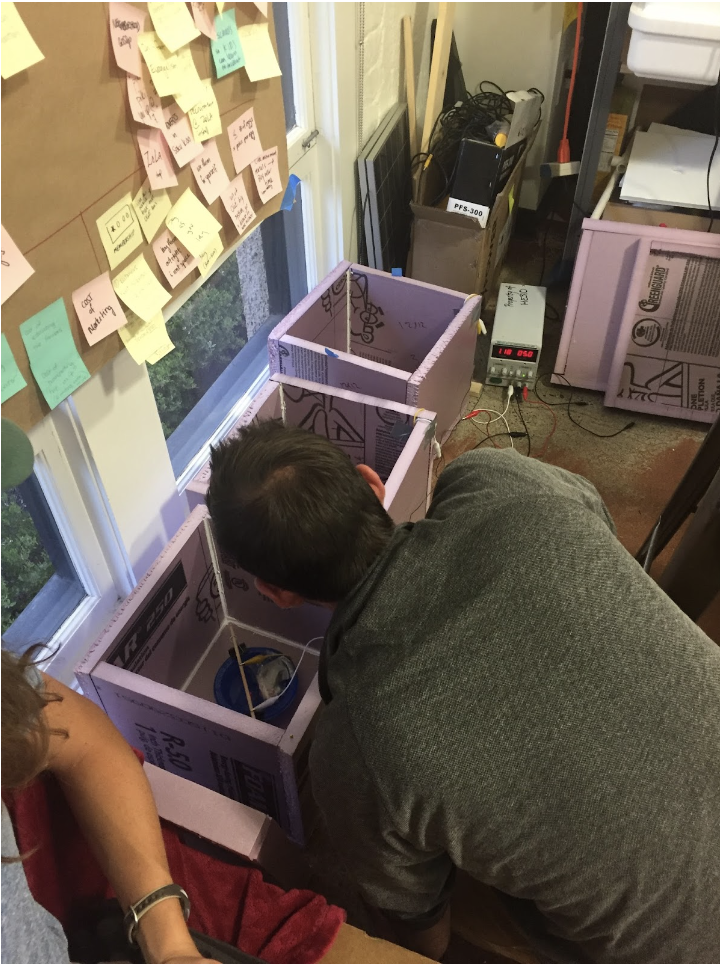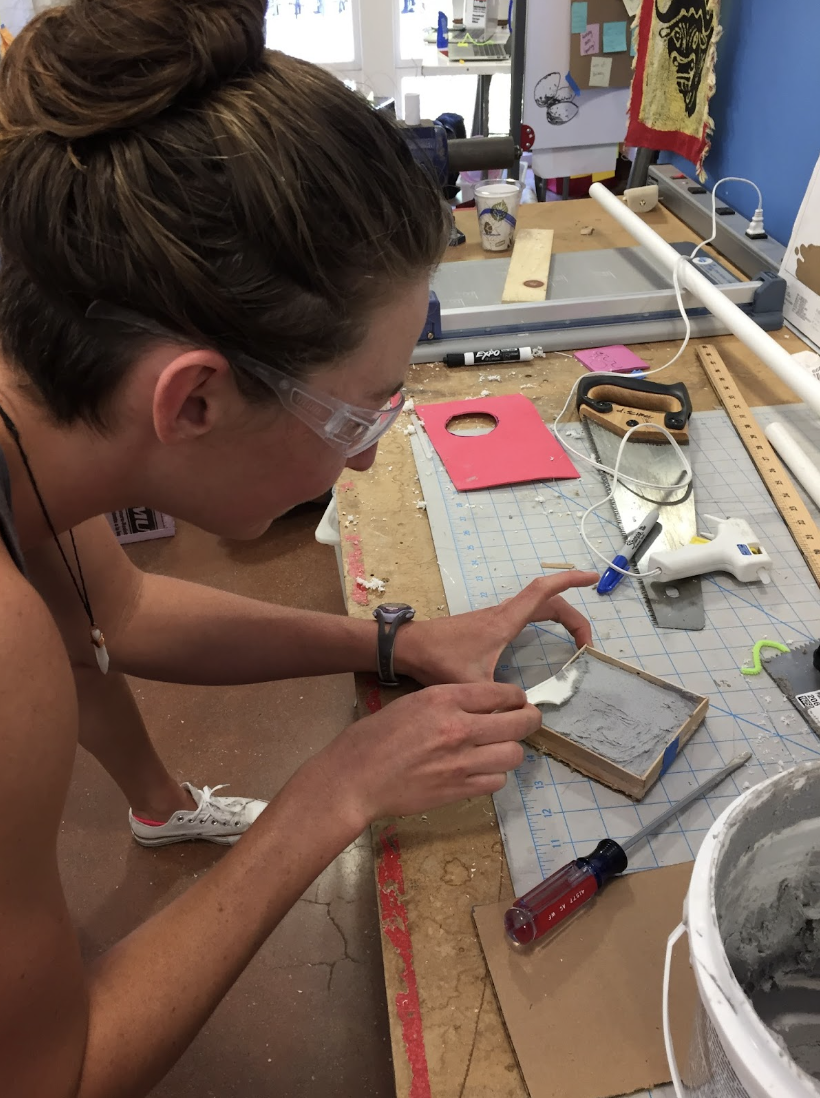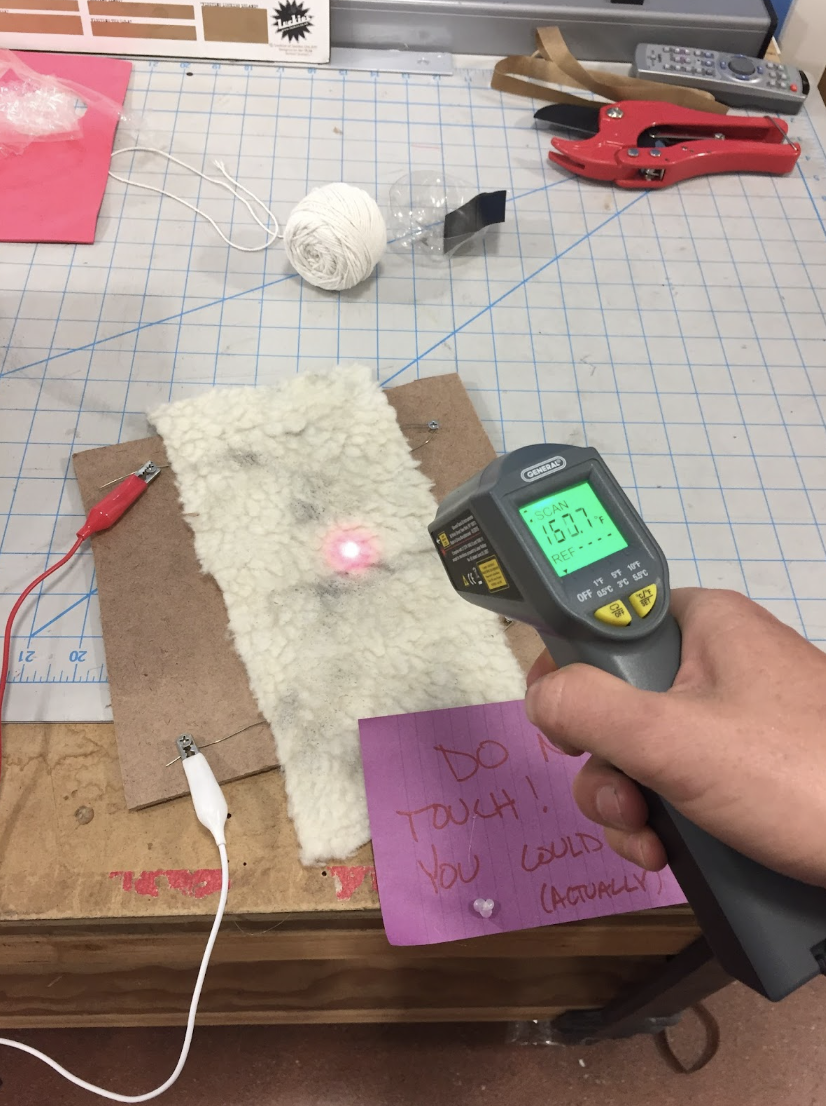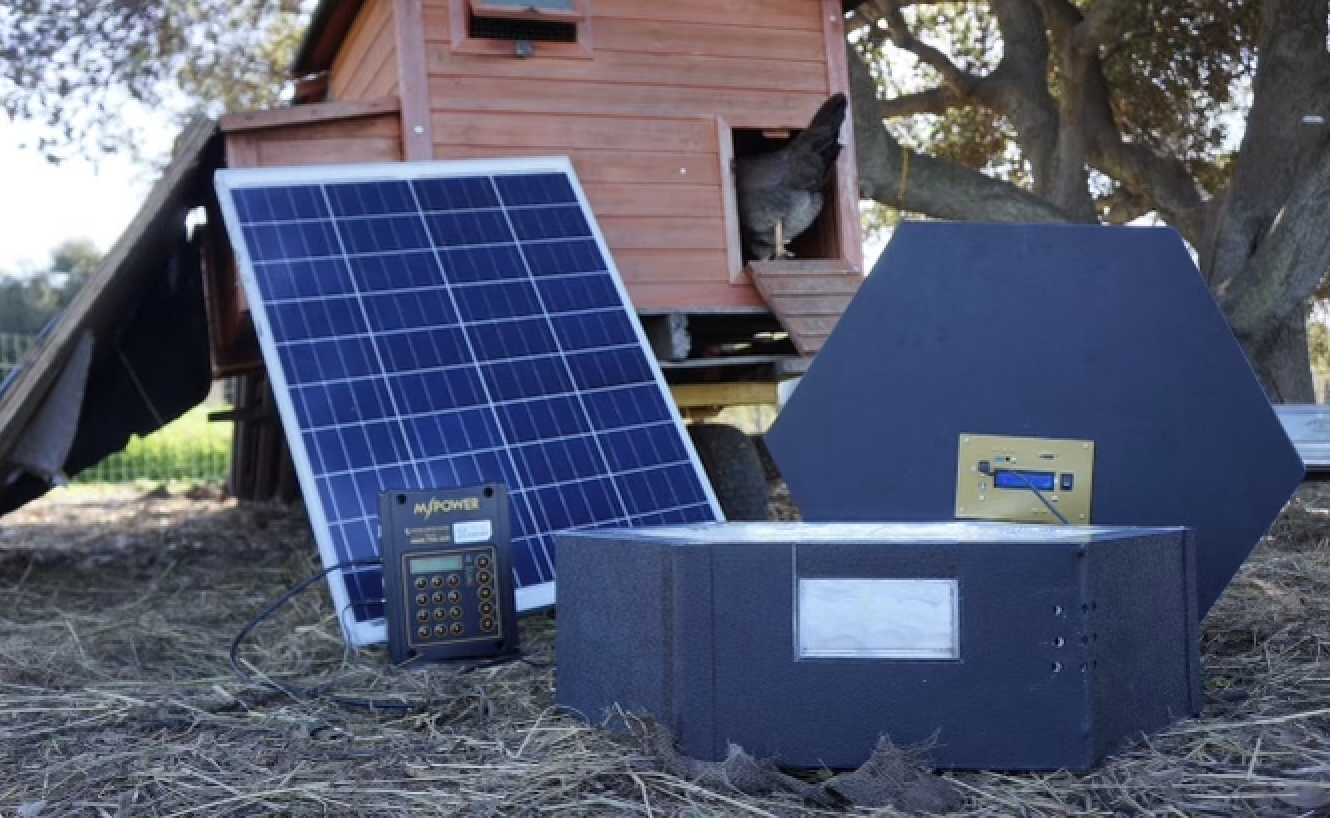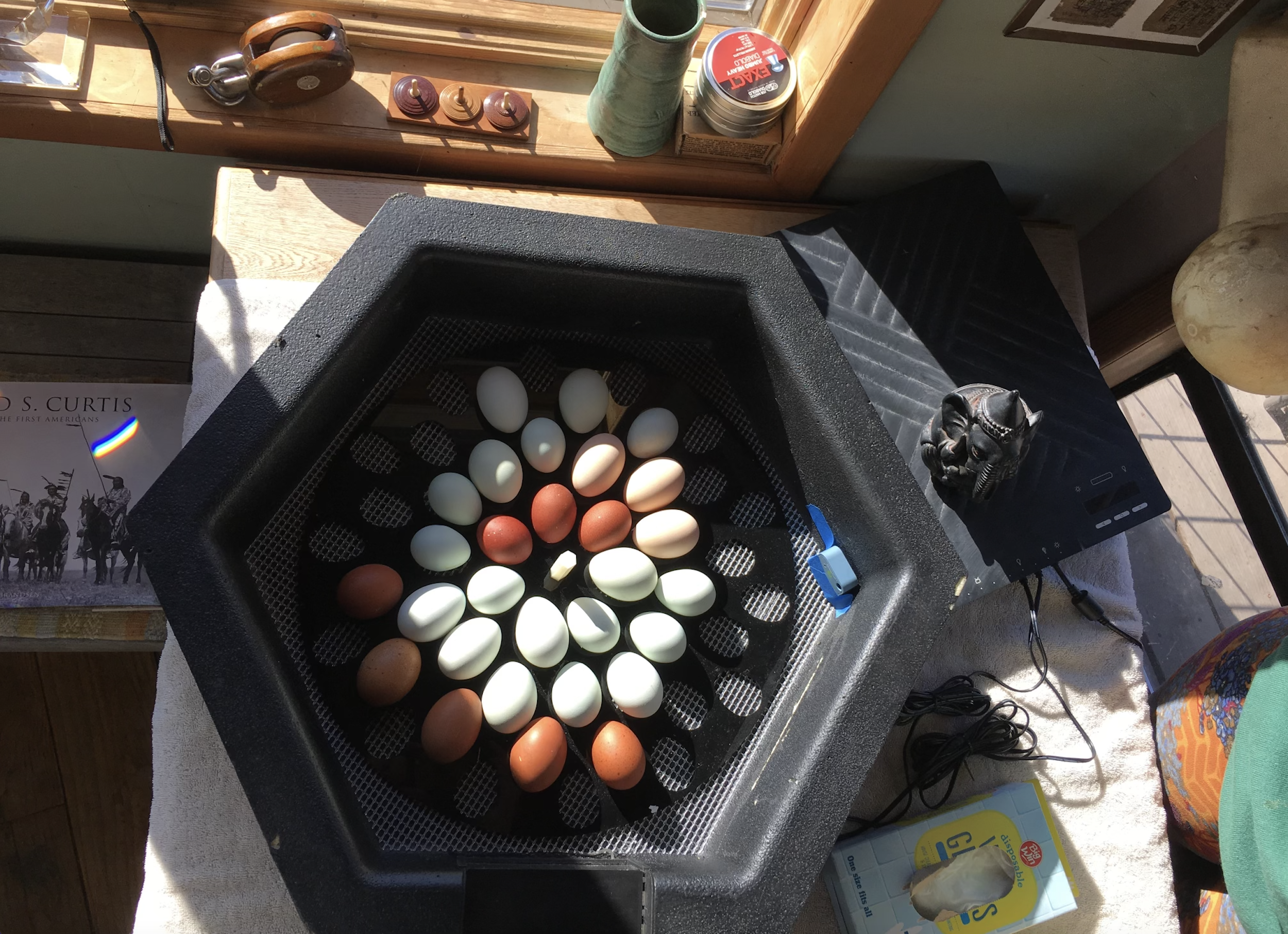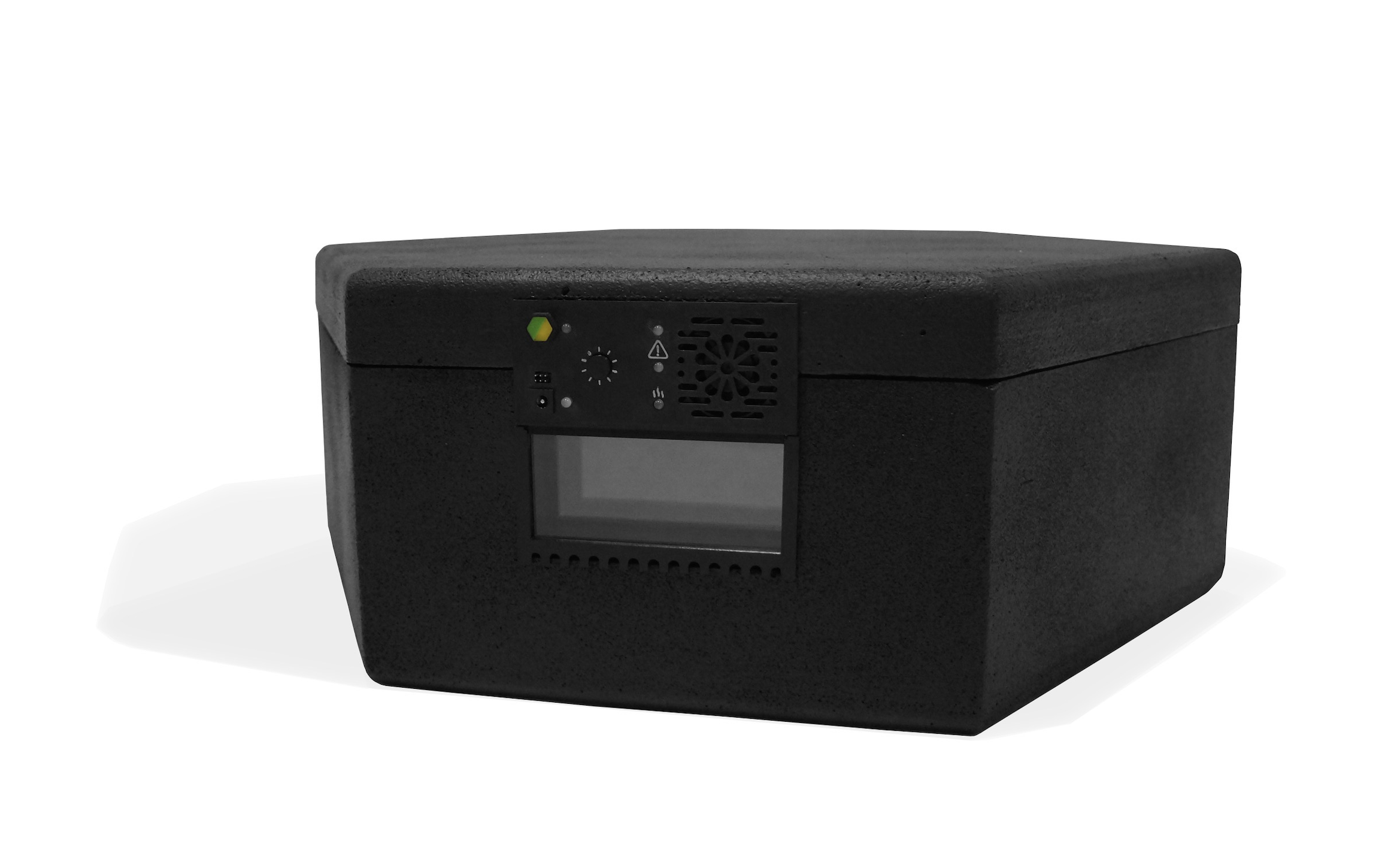PARTNER
PROJECT LINKS
We designed a solar powered chicken incubator
In Tanzania, many people have one unexpected thing in common… chickens! About 72% of households in Tanzania have chickens and similar numbers can be found across Africa. Chickens are relatively easy to keep and they provide a supplementary source of food and income. We wanted to learn more about chicken farming in Tanzania and see “How might we might create ways for chicken farmers in rural areas to more reliably support themselves?”
01. My team went to Tanzania
My team went to Tanzania where we teamed up with the Zola Electric team on the ground and they introduced us to their customers. We bumped along dirt roads, got stuck in the mud, and we met a lot of amazing chicken farmers. One of those farmers was a man named Goodluck.
He was a middle school teacher, and when we spoke to him, he decided to take up chicken farming. When school got out for the afternoon, he needed something to keep busy, and to make a bit of money. He told us about how his mom used to raise chickens, and how he had learned some from her while growing up.
He showed us the coop he built and detailed his daily routine. He fed the chickens in the morning, checked their water, and let the chickens out to roam in the afternoon. He also bought baby chicks and kept them warm during brooding using a charcoal pot or a hot water kettle.
He monitored his chicken flock adamantly, because he invested so much time and money into them. If something went wrong, it would be a financial hit.
To Goodluck and many of the other farmers we spoke with, raising chickens seemed like it had great potential to be a profitable business, if they could expand the endeavor. Goodluck was trying hard to grow his business and had minimal success incubating chicken eggs. However, he didn’t want to give up. He wanted independence over the business, control of the variables and transparency in the process. And he wanted something he can show off to family and friends when they come over for chicken dinners.
02. We prototyped and tested chicken incubators that would allow rural Tanzanian farmers to build successful businesses
Back at the Stanford d.school, we wanted to find a way for farmers in rural areas to be able to support themselves through chicken farming and make enough money to power their homes.
We asked ourselves, among the challenges to reliable flock growth, what can we do to have the biggest impact? We arrived at the answer of incubation, with the goal of creating an off-the-shelf-ready productive appliance that could introduce the trust of at-home production and the predictability of solar energy to chicken incubation.
This is where the idea for Kukua was born. The Kukua Incubator enables farmers who lack conventional electrical-grid access to reliably hatch chicks in their own home by making artificial incubation solar-power-compatible. Emphasizing energy efficiency and hatch success, Kukua Incubator can operate on less power than it takes to charge a cell phone, while delivering equivalent hatch rates to those of a careful mother hen. The incubator can be powered continuously from a battery system as small as 150Wh, with reserves for bouts of cloudy weather.
Kukua is a money-making machine for the large majority of off-grid farmers who raise chickens. Artificial incubation with Kukua affords farmers independence over the hatching process, increased revenue, and greater financial stability compared to their otherwise meager and volatile chicken farming income.
We spent months prototyping and testing various ideas. All centered on discovering the most energy-efficient, user-friendly way to incubate eggs in a Tanzanian home on solar power.
03. We iterated our product and continued to test with farmers in Tanzania
My team went back to Tanzania to test the product with chicken farmers. As we received feedback, we began to refine the incubator.
04. Design and manufacturing
While I moved onto other endeavors, the rest of my team continued the work at Kukua and reached a really exciting point! They are currently continuing testing with farmers in Tanzania, completing design for manufacturing, and building ongoing partnerships with solar and energy companies worldwide. Here is what the final product looks like:
#solarpower #cleanenergy #tanzania #chickens #incubators #businessmodeldesign #equity #accessibility #productdesign #servicedesign #designthinking






